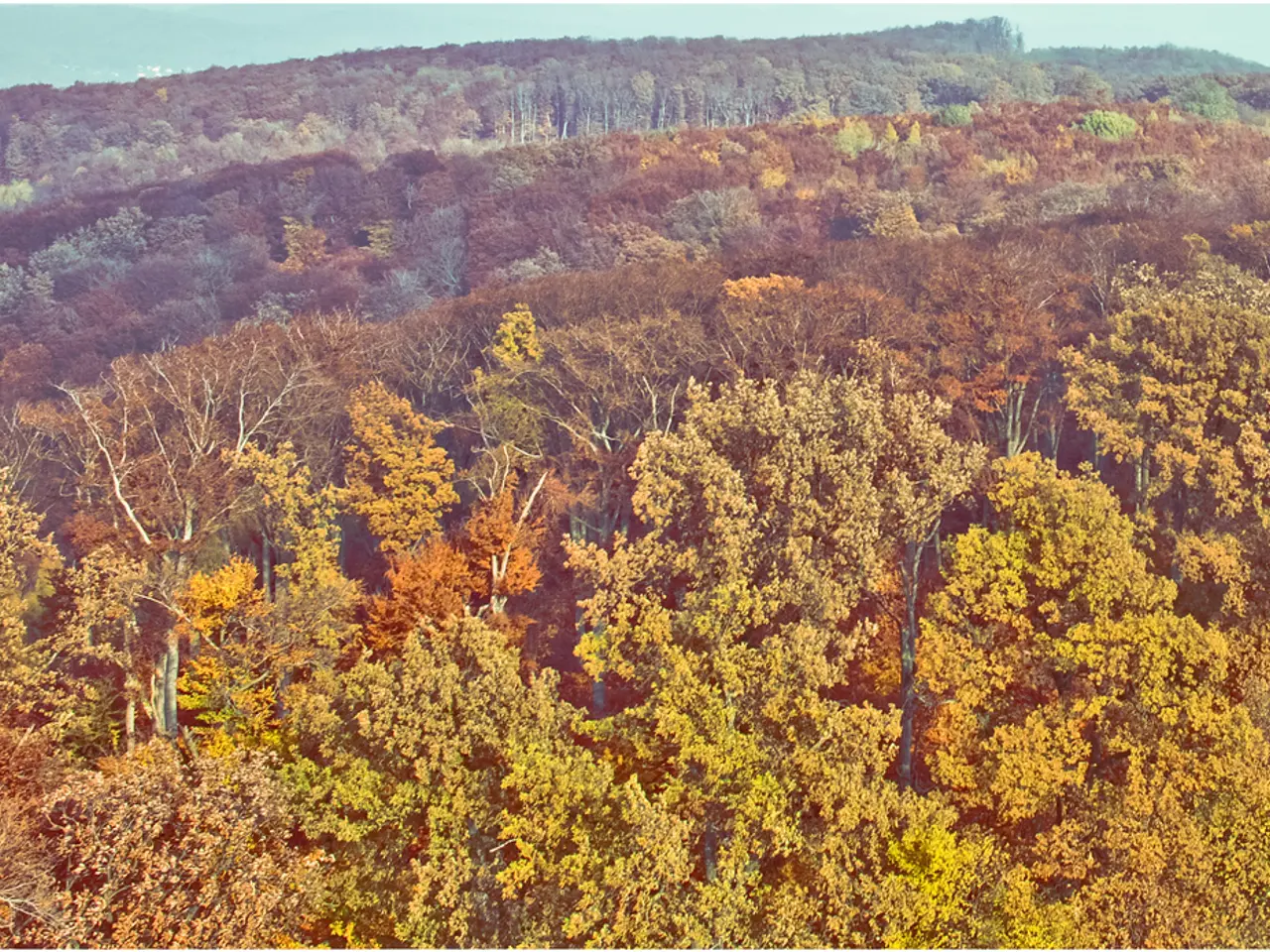Fast Furniture Produced by IKEA Linked to Bounties, Mafias, and Environmental Impact
In the realm of corporate environmental responsibility, IKEA finds itself under scrutiny. Lina Burnelius, an environmentalist, has levelled accusations against the furniture giant, claiming that IKEA is using Sweden's sustainable forestry model in a manner that obliterates ecosystems and suppresses the voices of indigenous peoples.
This controversy extends beyond Sweden's borders. IKEA, as the largest private forest owner in Romania, consumes a tree every two seconds, and nearly two-thirds of Romania's old-growth forests have been logged in nearly two decades. Investigations by Agent Green, Greenpeace, and others have alleged that IKEA's logging practices in high conservation-value forests fail to uphold EU biodiversity initiatives.
The EU has recently developed guidelines for "mapping, monitoring, and strictly protecting all the EU's remaining primary and old-growth forests." However, primary and old-growth forests in the EU today represent less than 3% of the EU's forests, with the decline primarily driven by intensive timber harvesting.
Grassroots efforts are pushing companies to commit to operations being "ancient- and endangered-forest-friendly." Primary mixed-species forests, which are 70% more effective carbon sinks and less vulnerable to wildfires, droughts, and infestations than monoculture plantations, are under threat.
The timber industry in Romania, often referred to as the "timber mafia," has been linked to corruption, violence, and even the deaths of forest guard patrolmen. An environmental nongovernmental organization called Agent Green has been exposing state corruption and illegal logging practices in Romania for the past 10 years.
The controversy has reached New Zealand, where IKEA has acquired more than 23,000 hectares of land since 2021, despite Māori dissent, to plant pine tree plantations. This move could potentially cause harm to Indigenous communities and natural ecosystems.
In response, IKEA disputes these claims, stating that it abides by national and EU regulations, upholds certification from the Forest Stewardship Council, complies with U.N. principles on Indigenous rights, and doesn't operate in legally protected areas. However, concerns have been raised about the Forest Stewardship Council's structural problems and conflicts of interest, including its cofounding by IKEA.
The situation is particularly dire for reindeer herders, whose livelihoods are threatened. Reindeer herders need to put the reindeer inside corrals with supplementary feed because tree plantations suffocate the lichen that the reindeer depend on. Nearly 2,000 years of Sámi and reindeer coexistence could be threatened by forest loss.
Jannie, a Sámi reindeer herder, claims that clear-cut logging is destroying Sámi forests, which are integral to reindeer herds, and that timber is likely in the IKEA supply chain. The Fagaras Mountains in Romania, part of Natura 2000, the world's largest coordinated system of protected areas, are being illegally logged.
A 2024 investigative report by Agent Green and Swiss ENGO, Bruno Manser Fonds, concluded that IKEA sources timber using destructive forestry practices, including in protected Natura 2000 sites. IKEA does not consider clearcuts as deforestation under the Food and Agriculture Organization's definition.
This ongoing controversy raises important questions about corporate responsibility, environmental preservation, and the rights of indigenous communities. As consumers, it is crucial to make informed decisions and support companies that prioritise sustainability and respect for the environment and indigenous rights.
Read also:
- visionary women of WearCheck spearheading technological advancements and catalyzing transformations
- Recognition of Exceptional Patient Care: Top Staff Honored by Medical Center Board
- A continuous command instructing an entity to halts all actions, repeated numerous times.
- Oxidative Stress in Sperm Abnormalities: Impact of Reactive Oxygen Species (ROS) on Sperm Harm








